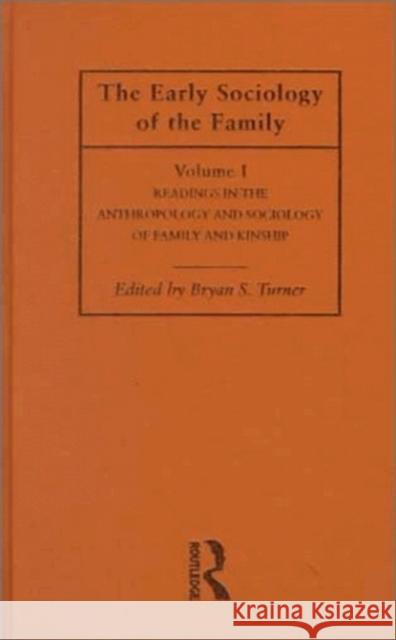The Early Sociology of the Family » książka
The Early Sociology of the Family
ISBN-13: 9780415171618 / Angielski / Twarda / 1998 / 3144 str.
The family is a fundamental and complex component of all human societies. Primarily concerned with the organization and regulation of sexual relations and procreation, it is also an organizer of economic production, social division of labour, and the distribution of property, as well as the socialization of children and the care of the elderly or disadvantaged. The family as an institution lies at the intersection of nature and culture, because it is fundamentally concerned with certain elementary biological functions (birth and death), and is a major vehicle for the transfer of culture. It is also part of the apparatus of social control in human societies. Scholarly definitions and theories of the family are correspondingly complex and controversial. The works selected here form a cross-section of the landmarks in this developing field in the 19th and early-20th centuries.
The works selected here form a cross-section of the landmarks in the complex and controversial field of family studies in the nineteenth and early twentieth centuries. Featuring writings from eminent sociologists such as Morgan, Starcke, Rivers, Groves, Ogburn and Nimkoff, the collection
* traces the sociology of the family from its origins in the anthropological study of kinship in the late nineteenth century
* includes examples of early twentieth century studies on family relations, which propose practical solutions to the problems of domestic breakdown and violence and the emergence of the single parent family
* illustrates the development of modern family studies with its emphasis on particular family problems and roles.











